projectloon
Latest

Alphabet's Loon forms advisory board to score internet balloon deals
Alphabet's Loon knows it needs to land carrier deals if it's going to turn internet balloons into a viable business, and that means tapping industry veterans who know how to make those deals. To that end, it just formed an advisory board that will help it find partners. The initial three members aren't household names, but you'll definitely know the companies they've worked for -- it's almost a who's-who of wireless.

Alphabet exec Rich DeVaul resigns after harassment allegation
Just days after a New York Times report dug into sexual misconduct by executives within Google and its parent company Alphabet, one of the men named has resigned. Rich DeVaul was a director of Alphabet's X research division (formerly known as Google X), and cofounded Project Loon. As first reported by Axios, DeVaul resigned, and did not receive an exit package.
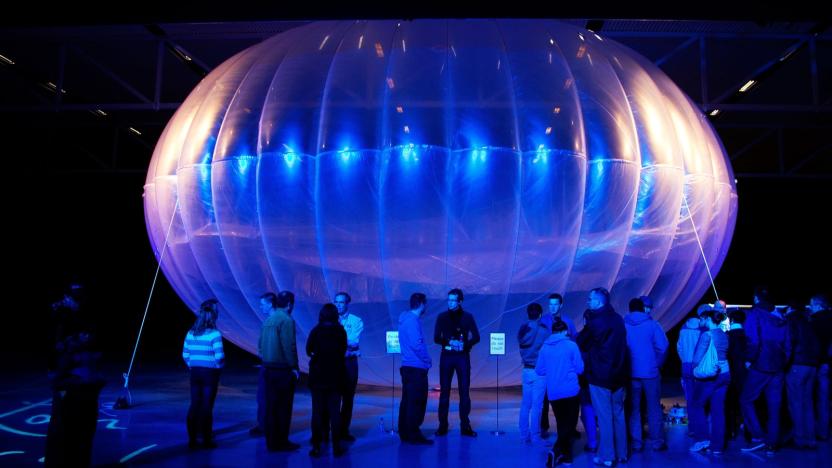
Alphabet's Loon internet balloons broadcast their strongest signal yet
Mere months after shedding its "project" moniker, Google's internet-by-balloon moonshot, Loon has hit another milestone. Last month, the tech juggernaut pushed data packets across seven of its balloons at a distance of nearly 1,000 kilometers. Previously, the record was 100 kilometers across two balloons, according to a Medium post from Loon.

Alphabet's Loon and Wing are now more than just 'projects'
Google parent company Alphabet's internet-delivering balloon service and its drone delivery project have graduated from X programs to full-fledged businesses at Alphabet. From here, Alphabet says that Loon will maintain its mission of working with carriers worldwide to deliver internet to underserved areas. Wing will similarly continue building out its network of delivery UAVs, not to mention its air-traffic control system for the unmanned aircraft.

Alphabet tries internet lasers instead of balloons for India
Alphabet is adopting laser-beaming boxes in favor of Project Loon's balloons for its latest internet-delivery partnership in Andhra Pradesh, India. The state government is snapping up 2,000 of the hubs, which rely on Free Space Optical Communications (FSOC) tech, from Alphabet's X innovations lab. Next year, the light-beaming links will be placed kilometres apart on roofs and posts to plug network access gaps between cell towers and WiFi hotspots. "Just like fibre optic cable, but without the cable," according to X's Baris Erkman.
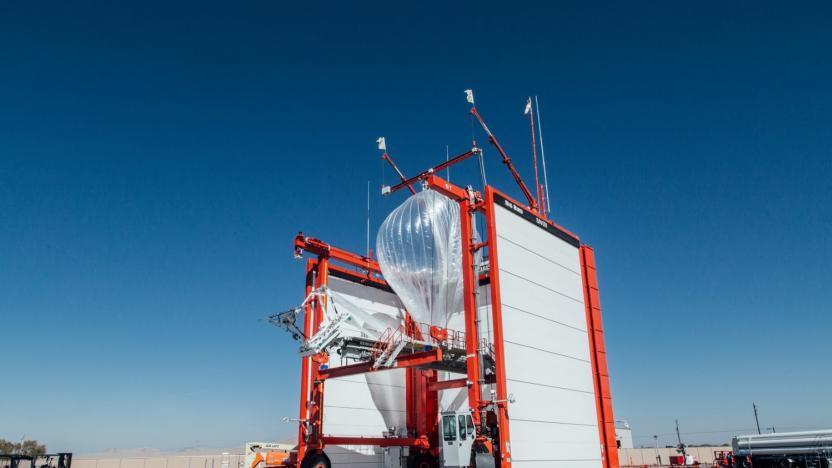
Project Loon delivers internet to 100,000 people in Puerto Rico
The FCC granted Alphabet's Project Loon, which delivers internet via balloons, an experimental license last month to help get Puerto Ricans online after Hurricane Maria decimated the island's infrastructure. While the team cautiously tweeted that it would 'explore of it was possible to help,' Project Loon announced today that it has worked with AT&T and T-Mobile to successfully deliver basic internet to over 100,000 Puerto Ricans to the internet.
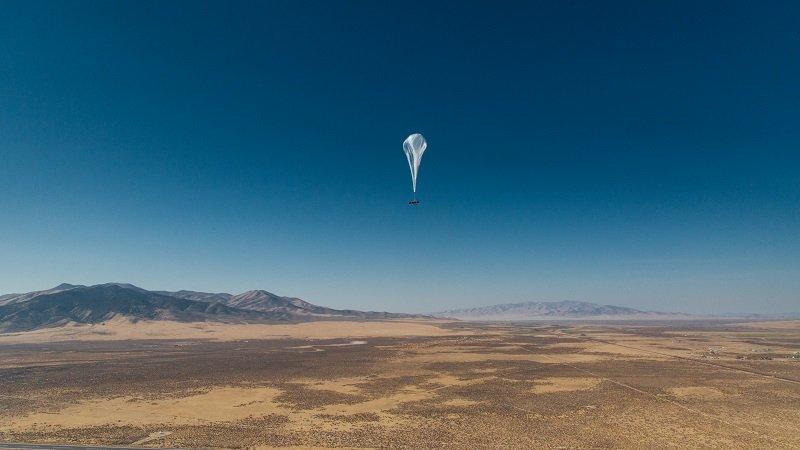
Now T-Mobile is working with Project Loon in Puerto Rico
Last week AT&T announced it was the first carrier working with Alphabet's balloon-distributed wireless setup in Puerto Rico after Hurricane Maria, and now T-Mobile customers have access too. Project Loon started off in the X Labs at Google -- which are now a part of its parent company Alphabet -- and uses balloons floating 20km high in the stratosphere that beam internet to people below. T-Mobile didn't specify which phones are compatible so far, but this should provide daytime access to limited internet service (text messaging, basic web access and email) in areas where the towers are still out. The Team at X tweeted that Project Loon has already delivered access to "tens of thousands" of people in Puerto Rico, and this should add many more to that number. Residents who use it won't necessarily know they're on Project Loon however, since the team says it appears on their just like any other LTE connection.
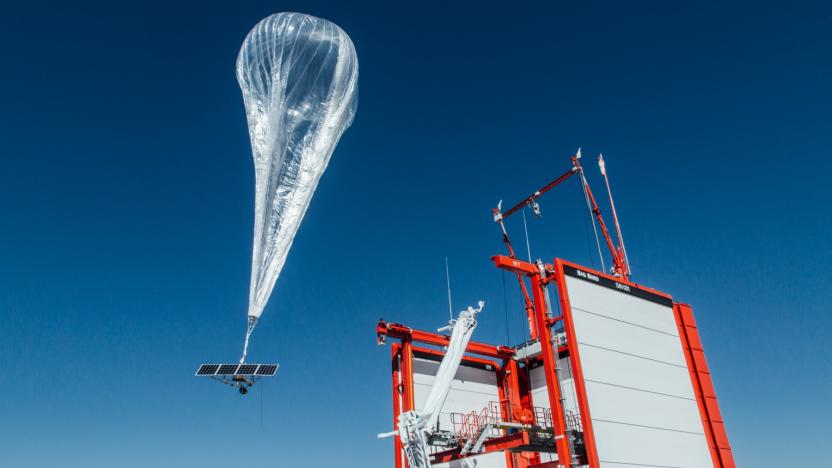
Project Loon's LTE balloons are floating over Puerto Rico
About a month after Hurricane Maria's devastating landfall on Puerto Rico and a couple of weeks after the FCC gave clearance, Project Loon is bringing wireless internet to people on remote parts of the island. Part of (Google parent company) Alphabet's X innovation lab, the project uses balloons circling the Earth at high altitude to provide wireless connections. Now, it's partnered with AT&T to light up "limited" internet connectivity with support for text messaging, basic web access and email.
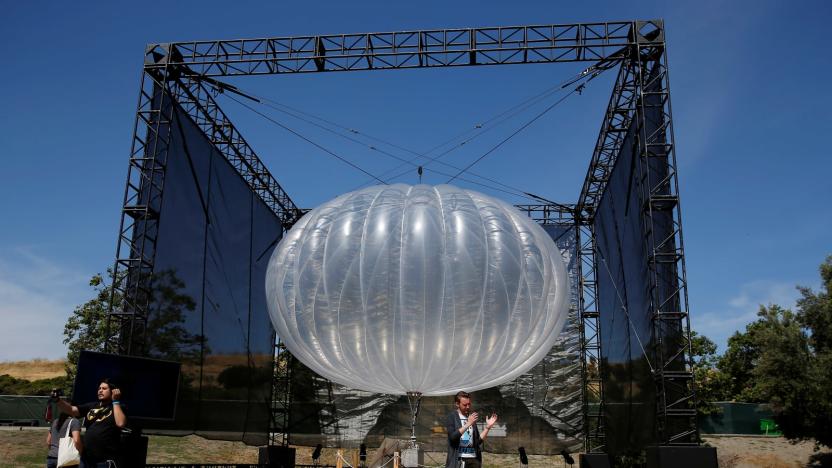
Alphabet may have spun out Project Loon into its own company (update: Alphabet responds)
Project Loon might be a strange project with a wacky name, but apparently Google's parent company Alphabet believes in it. It appears as though the project, which began as a part of Google and was upgraded to Alphabet X's innovation lab, has been spun out into a company of its own. Business Insider first noticed the organization was listed as "Loon Inc." in a recent FCC filing. This signals that Alphabet may be ready to allow Loon to operate as its own corporation. We've reached out to the Project Loon media team for comment.
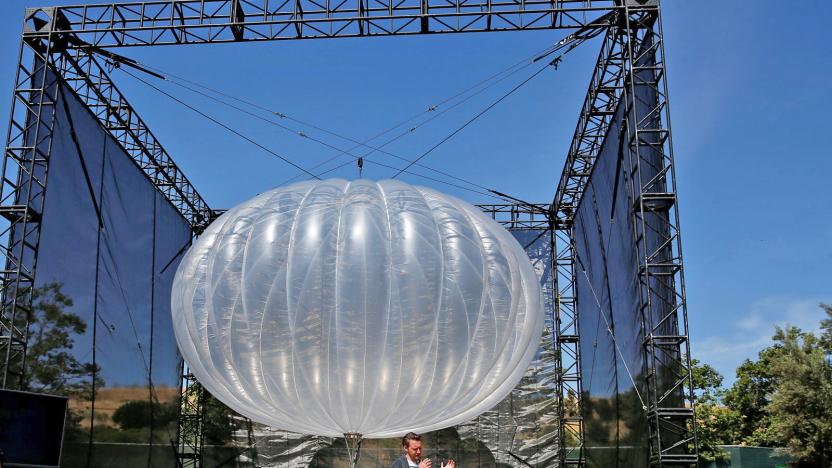
Project Loon cleared to help restore wireless in Puerto Rico
Project Loon -- the balloon delivered internet project that started life as part of Google and now calls Alphabet's X "innovation lab" home -- has moved one step closer to becoming a part of the relief efforts in Puerto Rico. The FCC has issued an "experimental license" for it to provide emergency cellular LTE service. In a statement, an X spokesperson explained that the next step is to integrate with a telco partner's network, which it's "making solid progress on."
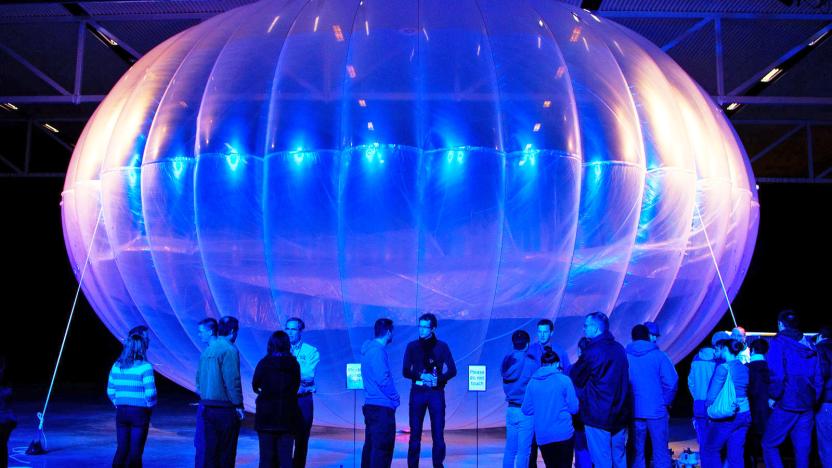
Alphabet's internet balloon chief leaves after 6 months
Alphabet's Project Loon is running into some figurative turbulence in addition to the literal kind. Tom Moore, the satellite executive who was brought on as CEO to help Project Loon become a full-fledged business, has left the leadership position after just 6 months. It's not clear why he's on the way out (neither he nor Alphabet are commenting), but he's being replaced by Alastair Westgarth, a wireless industry veteran best known for turning startups into viable companies. His "vision" for the internet balloon project matches the strategy of Alphabet's X division, "approaching huge programs, at scale, to improve the lives of millions or billions of people," the company says.
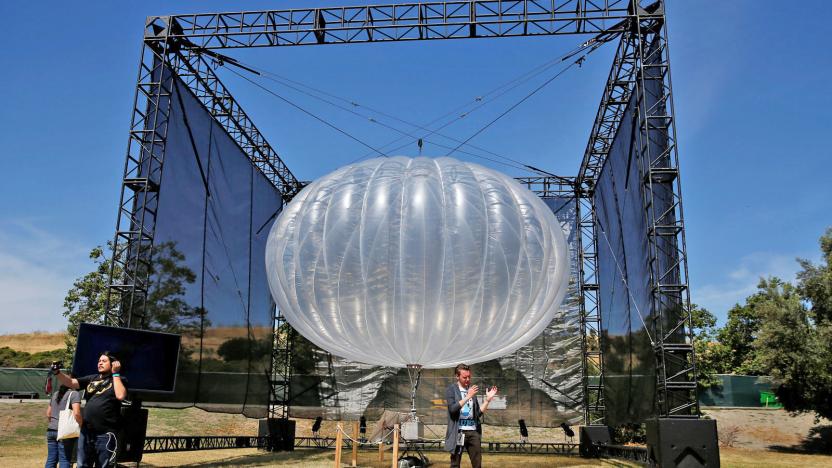
Alphabet won't need all those internet balloons after all
Since it launched nearly four years ago, Alphabet's Project Loon experiment has shifted from an unlikely moonshot to an idea that might actually work. As Alphabet's experimental X division chief and "Captain of Moonshots" Astro Teller wrote today, the project team has "now exceeded even their own expectations," in the attempts to build a network of self-navigating, internet-beaming balloons. "And in the process they've leapt much closer to a day when balloon-powered Internet could become a reality for people in rural and remote regions of the globe."

Six new technologies that will enable faster, better internet to the world
By Cat DiStasio The internet is one of the most important inventions of the modern era. However, current estimates say that only 40 percent of people around the globe have access. As internet connectivity becomes ever more important, new technologies are emerging to connect the entire globe with better, faster service. On several continents, research and development projects are underway to provide internet connectivity via high-altitude balloons -- not unlike those used to capture weather data, unmanned solar-powered drones and next-generation wireless routers. Each offers higher speeds and more reliability than current modes, plus the obvious benefit: getting the world online, all at the same time.

Google internet balloon uses AI to stay in place for weeks
When Google first introduced Project Loon, its internet balloons used static algorithms to change altitude and stay in position. While clever, they were limited -- Google couldn't do much to adapt to unexpected weather patterns, which are quite common tens of thousands of feet in the air. Flash forward to today, however, and it's a different story. The Project Loon team has revealed that it's using artificial intelligence technology (specifically, machine learning) to alter balloons' behavior and keep them in position for much longer. One test balloon stayed in the Peruvian stratosphere for 98 days, adapting to tricky wind conditions that might have sent it drifting away.

Google hires satellite exec to head up Project Loon
The Project Loon team has been conducting successful tests in different parts of the globe for quite some time, but they've yet to release a commercial product. Google's new hire could change that. The tech titan has signed up Viasat exec Tom Moore to become the team's new general manager by mid-September. Moore originally joined the satellite communications provider when it acquired the company he co-founded. Now, his role is to steer the Loon ship into its next phase and make the internet balloons' commercial deployment a reality.

Facebook's solar-powered drone makes first full test flight
Facebook's solar-powered, internet-beaming plane Aquila is finally ready for takeoff after two years of engineering and scale model flights. As the company reports today, a full-scale version of Aquila made its first official flight on June 28th, staying aloft for 96 minutes while the ground crew tested everything from the autopilot system to the aerodynamics and radios.
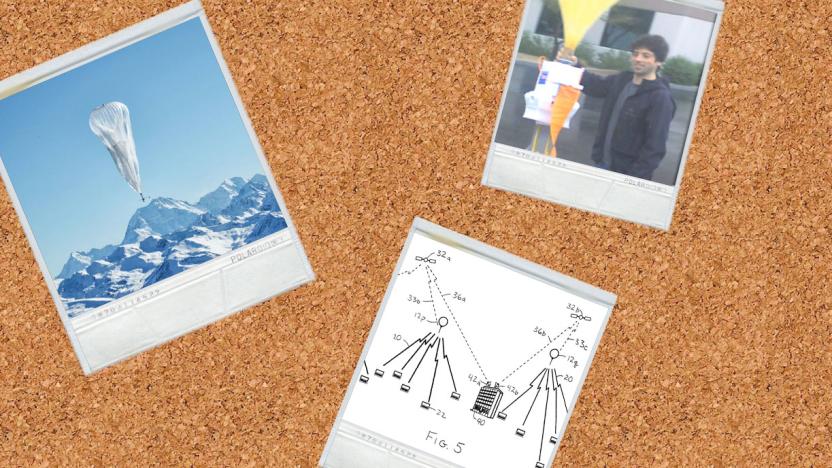
Google accused of stealing the idea for Project Loon
Did Google engineers steal the idea of Project Loon from a company that was already testing weather balloons to distribute the internet? That's what Space Data Corporation alleges, having filed a lawsuit against the search engine in California this Monday. According to the complaint, Larry Page, Sergey Brin and Google X representatives met with SDC way back in 2007. At the time, it looked as if Google might invest in SDC, and as part of the negotiations, both parties signed an NDA. Space Data then shared its top-secret research on how to make the system work in reality -- thinking that its ideas were protected by the agreement.

Google seeks carrier for Loon pilot program in India
Google's Project Loon has blossomed from a crazy-sounding scheme into a practical program. In fact, the company can now auto-launch a balloon in 30 minutes that will stay aloft for 100 days. For the next step, the company will run a full pilot program to provide service to a large number of actual people, and is planning on doing it in India. The company's India VP, Rajan Anandan, told the Economic Times that it will need to partner with an India-based carrier to do so. "We can't do a Loon pilot without partnering with a local telco. We're talking to a number of them."

Project Loon shows off autolauncher at work in Puerto Rico
With Project Loon, Google aims to provide wireless, high-speed internet to underserved areas like the entire nation of Sri Lanka. The team has figured out how to guide them around the globe using prevailing, high-altitude winds and the current design can stay aloft for nearly 100 days. To start delivering a service, Google just needs to get lots of balloons in the air, and that's where the portable autolaunchers come in. First revealed last May, Google recently showed off how it launched a Project Loon balloon in Puerto Rico in just a half-hour using the 55-foot tall crane-like device.

Inhabitat's Week in Green: Riversimple's hydrogen car and more!
Is the age of the hydrogen car upon us? This week Riversimple announced plans to launch a 250-mpg fuel cell vehicle that's as affordable as a gas-burning car. The craziest part is that the company won't be selling it: Drivers will instead purchase a monthly plan that includes maintenance, insurance and hydrogen fuel. Meanwhile, Lexus unveiled the LC 500h, a 470-horsepower beast that could very well be the sexiest hybrid ever made. And three friends developed one of the craziest-looking vehicles we've ever seen. It's called the Cedar Rocket, and it's the world's fastest electric log car.









